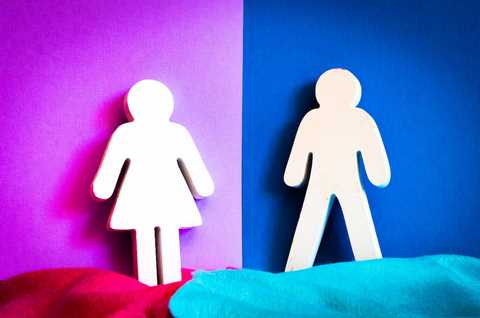Gender equality is a fundamental principle that advocates for equal rights, opportunities, and treatment for individuals of all genders.
It is a pursuit aimed at creating a society where gender does not determine one’s worth, capabilities, or access to resources.
The essay on gender equality explores the importance and significance of achieving a state of balance and fairness in our social, economic, and political systems.
This essay delves into the causes, effects, and potential solutions surrounding the quest for gender egalitarianism in our modern world.

10 Liner Essay on Gender Egalitarianism
1. Gender equality is the pursuit of equal rights and opportunities for all genders.
2. It strives to eliminate discrimination based on gender, fostering a fair and inclusive society.
3. Gender equality empowers individuals to fulfill their potential, irrespective of their gender identity.
4. It challenges stereotypes and biases that limit opportunities and perpetuate inequality.
5. Gender equality ensures that everyone has equal access to education, employment, and leadership roles.
6. It promotes respect, dignity, and equal treatment for individuals of all genders.
7. Gender equality is essential for social progress, economic growth, and sustainable development.
8. It aims to break down societal barriers and create a world where gender does not define one’s worth.
9. Gender equality benefits everyone, promoting diverse perspectives and fostering a more just and harmonious society.
10. Let us work together to create a future where gender equality is a reality, ensuring a better world for all.
Essay on Gender Equality in 150 Words
Gender equality is a fundamental principle that advocates for equal rights, opportunities, and treatment for individuals of all genders.
It is a vision of a society where gender does not determine a person’s worth, capabilities, or access to resources.
Gender egalitarianism is important because it promotes fairness, justice, and inclusivity.
It challenges harmful stereotypes, biases, and discriminatory practices limiting individuals based on gender.
Gender equality is not only a matter of human rights but also crucial for social progress and development.
It contributes to economic growth by empowering women and girls and promoting their participation in education, employment, and decision-making.
Moreover, gender equality fosters social cohesion and harmony by creating an environment of respect, understanding, and collaboration among people of all genders.
It is a collective responsibility to work towards achieving gender equality and ensuring that everyone has equal opportunities and rights, regardless of gender identity.
Gender Equality Essay in 300 Words
Gender equality is a fundamental principle that advocates for equal rights, opportunities, and treatment for individuals of all genders.
It is based on the belief that everyone, regardless of their gender identity, should have the same rights, privileges, and access to resources.
Achieving gender egalitarianism is not only a matter of fairness and justice. Still, it is also crucial for society’s overall well-being and progress.
One of the primary reasons why gender equality is important is because it promotes social justice.
It challenges the stereotypes and norms limiting individuals based on gender, allowing them to live authentic and fulfilling lives.
Gender egalitarianism recognizes the inherent worth and dignity of every person, regardless of their gender, and ensures that they have equal access to opportunities in education, employment, healthcare, and decision-making processes.
Gender equality also contributes to economic growth and development.
When women and girls are given equal access to education and employment opportunities, they can contribute their skills, knowledge, and perspectives to the workforce.
This leads to increased productivity, innovation, and economic prosperity.
Gender equality is not just about empowering women but about creating a society where all individuals can contribute to their fullest potential.
Furthermore, gender equality fosters social cohesion and stability.
When everyone is treated with respect and equality, it strengthens the fabric of society.
It promotes empathy, understanding, and cooperation among individuals of different genders.
By dismantling gender-based discrimination and violence, gender equality creates a safer and more inclusive environment.
In conclusion, gender equality is crucial to a just and progressive society.
It is essential for promoting social justice, economic growth, and social cohesion.
By striving for gender equality, we can create a world where everyone, regardless of gender, has equal opportunities and rights to live a life of dignity, respect, and fulfilment.
Essay on Gender Equality for Students (500 Words)
Gender equality is the principle that advocates for equal rights, opportunities, and treatment for individuals of all genders.
It seeks to eliminate discrimination and promote fairness, ensuring that gender does not determine a person’s worth, capabilities, or access to resources.
Gender egalitarianism is of paramount importance in building a balanced and inclusive society, where all individuals can thrive and contribute to their full potential.
Causes of Gender Inequality:
a. Social Norms and Stereotypes:
Societal expectations and traditional gender roles often reinforce inequality.
Cultural beliefs and norms that assign specific roles and responsibilities to individuals based on their gender perpetuate discriminatory practices.
b. Unequal Access to Education and Opportunities:
Gender disparities in education, both in terms of access and quality, contribute to the perpetuation of gender inequality.
Occupational segregation, where certain fields are dominated by one gender, and the gender pay gap are further manifestations of inequality.
c. Discrimination and Gender-Based Violence:
Gender-based violence, including domestic violence, sexual assault, and harassment, is a significant barrier to achieving gender equality.
Discrimination in the workplace, ranging from unequal pay to limited opportunities for career advancement, further perpetuates gender inequality.
Effects of Gender Inequality:
a. Economic Implications:
Gender inequality has profound economic consequences.
The economic disempowerment of women, including limited access to economic resources, employment opportunities, and financial independence, hinders overall economic growth and development.
Studies have shown that closing the gender gap in labor force participation can have a significant positive impact on a country’s GDP.
b. Social and Cultural Consequences:
Gender inequality limits opportunities and potential, resulting in societal imbalances.
Women and girls face barriers in education, healthcare, and decision-making processes, impeding their overall well-being and stifling their aspirations.
Gender inequality also has detrimental effects on the mental and emotional well-being of individuals, perpetuating a cycle of inequality.
c. Political Representation and Decision-Making:
The underrepresentation of women in political leadership and decision-making roles hampers the development of gender-responsive policies and the promotion of diverse perspectives.
Achieving gender equality requires empowering women to actively participate in shaping policies and driving change.
Solutions for Achieving Gender Equality:
a. Education and Awareness:
Promoting gender-responsive education that challenges stereotypes and biases is crucial.
Raising awareness about the importance of gender equality through media and communication channels can help change societal attitudes and norms.
b. Legal and Policy Reforms:
Implementing gender equality laws and policies is essential for creating a supportive legal framework.
Encouraging organizations to adopt gender-responsive policies and practices can ensure equal opportunities for all employees.
c. Empowering Women and Girls:
Providing equal access to education, vocational training, and skill development programs is key to empowering women and girls.
Promoting economic opportunities, including financial inclusion and entrepreneurship, can enable women to overcome barriers and achieve economic independence.
d. Encouraging Male Engagement and Allyship:
Breaking down gender norms and encouraging men to actively participate in promoting gender equality is vital.
Fostering gender-equal relationships and encouraging men to be allies in the fight for gender equality can bring about lasting change.
Conclusion:
Achieving gender equality is a critical endeavor that requires concerted efforts from individuals, communities, and governments.
By addressing the root causes of gender inequality, promoting education and awareness, implementing legal and policy reforms, empowering women and girls, and fostering male engagement, we can create a society that embraces diversity, equality, and inclusivity.
Gender egalitarianism is not only a matter of social justice, but also a catalyst for sustainable development, progress, and harmony in our global community.
FAQs (Frequently Asked Questions)
A. Gender equality is important because it ensures fairness, dignity, and equal opportunities for all individuals, regardless of their gender. It promotes social progress, economic growth, and a more inclusive society.
A. Gender equality benefits men by challenging restrictive gender norms, promoting healthier relationships, and providing equal opportunities for personal and professional growth. It fosters a more inclusive and diverse society that benefits everyone.
A. Barriers to achieving gender equality include deep-rooted stereotypes, gender-based violence, unequal access to resources and opportunities, discriminatory practices, and societal norms that limit the roles and expectations of individuals based on their gender.
A. Individuals can contribute to gender equality by challenging their own biases, promoting inclusivity in their personal and professional lives, supporting women’s and LGBTQ+ rights organizations, advocating for policy changes, and engaging in conversations that challenge stereotypes and promote equality.
A. The timeline for achieving gender equality varies depending on factors such as cultural context, social progress, and policy changes. It is an ongoing process that requires sustained effort, collective action, and a commitment to challenging and dismantling gender disparities.




